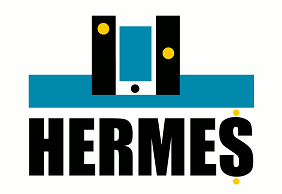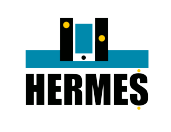About the HERMES team
The context
Not so long ago, gambling was almost exclusive to casinos, a few bars, or basements for a friendly round of poker. Through the emergence of an online world and new forms of technology, the nature of gambling has transformed over time and its availability has infinitely increased. The merging of respective principles of video games and gambling has yielded a new generation of hybrid games – “gamified gambling” or “gamblified video games” – distributed online and blurring the lines between what constitutes gaming versus gambling.
Mission and Goal
The HERMES research team proposes a program that aims to examine emerging hybrid gambling forms, and their impact on the everyday life of individuals and communities. Since 2012, our team has comprised university researchers and clinicians specialized in the field of addiction studies who aim to develop scientific projects while integrating the specific needs of clinical settings.
The HERMES team's mission is to:
- Generate a body of scientific knowledge regarding the reality of digital gambling that is useful to both researchers and clinicians;
- Develop intervention tools for and with clinicians.
The HERMES team will attempt to achieve the following goals:
- Describe and explain the nature, structure, and function of online gambling, including traditional gambling (gambling and video games) and hybrid games;
- Analyze the changing social, economic, and regulatory context in which these games emerge;
- Develop strategies, practises, and intervention tools for prevention and treatment.
Research Axes
This axis aims to analyse the structures of games, particularly the mechanisms of hybridisation in digital gambling through the dynamic and interactive processes of gamblification and gamification that characterise them. It will also examine gamblers' experiences, their gambling trajectories, and the transitions between game types. Finally, this axis aims to better understand gaming as a temporal space, and of socialisation and self-expression.
This axis aims to analyze the social, economic, and regulatory environment in which digital gambling takes place. Current projects explore the issue of the commodification of digital gambling, including the study of regulation, promotion, and advertising.
This axis aims to support clinical environments through a co-construction approach with its partners and collaborators to develop cutting-edge, evidence-based prevention and intervention practises.
Partners
| National organisations | Country |
|---|---|
| Association des intervenants en dépendance du Québec (AIDQ) | Canada |
| Association québécoise des centres d’intervention en dépendance (AQCID) | Canada |
| CAPSANA | Canada |
| Research Chair on Gambling | Canada |
| CISSS de Chaudière-Appalaches | Canada |
| CISSS de Lanaudière | Canada |
| CIUSSS de la Capitale-Nationale | Canada |
| CIUSSS du Centre-Sud-de-l’Île-de-Montréal | Canada |
| Regional director of public health | Canada |
| Gambling: Help and Referral | Canada |
| Maison Jean Lapointe | Canada |
| International organisations | Country |
|---|---|
| Hôpitaux universitaires de Genève | Switzerland |
| Observatoire des jeux | France |
| University of Hamburg | Germany |
| Université Paris Ouest Nanterre | France |
Collaborators
| Name | Affiliation |
|---|---|
| Maude Bonenfant | Université du Québec à Montréal, Canada |
| Magaly Brodeur | Université de Sherbrooke |
| Ingo Fiedler | University of Hamburg, Germany Concordia University, Canada |
| Aphra Kerr | Maynooth University, Ireland |
| Yasser Khazaal | Université de Lausanne and Hôpital de Genève, Switzerland |
| Lucia Romo | Université Paris Ouest Nanterre, France |
| RISQ – Groupe recherche et intervention sur les substances psychoactives | Université du Québec à Trois-Rivières, Canada |
| William Spencer Murch | Concordia University, Canada |
| TAG - Technoculture, Art and Games | Concordia University, Canada |





